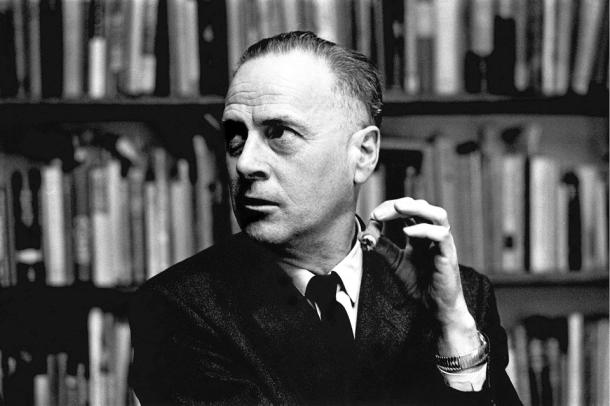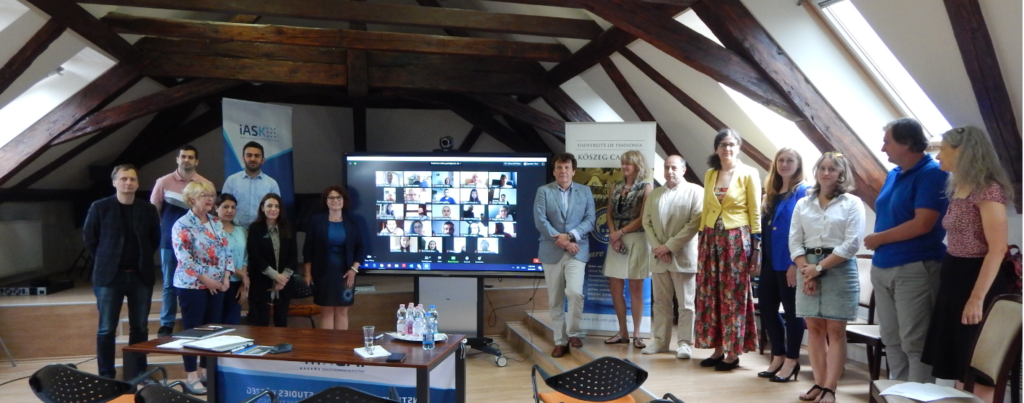Research & Studies


So now it’s over. The 25th Anniversary International Summer University online exceeded our expectations. It seemed risky at the start, and many were skeptical.
Half a century ago Marshall McLuhan, some people’s messiah, was quoted to say ’when faced with a totally new situation we tend always to attach ourselves to the objects, to the flavor of the most recent past. We march backward into the future.’
In the months of the Covid-19 lockdown we often heard (and said) that from hereon the world would never be the same – most often followed by the question ’how will it be different?’, answered by the statement ’we have no idea.’
For 25 years the International Summer University (ISU) has been an event to discuss the most topical political-sociological-cultural issues of the day, more recently with a Central and East European focus. Let us not forget, these were (and still are) years of transformation from communism to democracy, from a socialist deficit economy to a capitalist society. The orchestra gathered, began to play, improvising as they went. There always were electrifying ideas to ponder, some excitingly promising, others excitingly worrying. The ISU never ran out of questions, topics, phenomena to describe, to debate, to seek answers to.
After the coronavirus arrived on the scene, in late spring iASK was faced with the dilemma of whether to organize or postpone the ISU this year. The dilemma was exacerbated by the fact that this was, after all, a rare anniversary year. The discussion tilted towards postponement, but just as the final decision was about to be made, the iASK corps of young research fellows, mostly from East-Central Europe, proposed that the course be organized on the world wide web.
And so it was, that McLuhan statement began to lose its brilliance. iASK faculty, fellows, administrative and technical staff ’faced with a totally new situation’ did not attach themselves ’to the flavor of the most recent past.’ Instead, they went to work.
The results? In 10 morning and afternoon sessions more than 40 lecturers and panelists, speaking from such distant locations as Tallin, Toronto, Moscow, New York and Vienna, spoke to an audience not only in Europe but in Cuba, India, and Peru among the 25 countries represented by the participants. Some of the main issues this year dealt with Economic Crisis and Resilience in East-Central Europe, Alternatives as seen from Southeastern Europe, Russia and Central Europe, Systems in Distress: The Future of Europe after Covid-19, Risk Perception and Cultural Rationality, and the Future University. Speakers included iASK international board members such as George Schöpflin, Erhard Busek, Sean Cleary and Katalin Bogyay, as well as known scholars and colleagues like Lyubov Shishelina, Tibor Navracsics, Ivan Vejvoda, Steve Austen, Dion van den Berg and Farid Tabarki.
In addition and importantly, contrary to general conference custom, interest did not wane as the days rolled on. On the contrary, the global audience became more and more active: questions and comments grew from a trickle to a rich and steady flow.
And now it is over. It ended on Friday afternoon, July 3, 2020. Mark the date: this was when iASK reached and passed a milestone: it offered quality science, reflection, discussion worldwide – and not to forget – a taste of culture was also provided in the form of music and sightseeing to those interested.
To what can we attribute the success of the ISU? To fully answer this question will take some time for reflection, but a few immediate observations come to mind.
This brings us to how a handful of technicians at the institute, with limited experience of online conferencing, were able to connect with the rest of the world lives, with dozens of locations, scores of participants. It took a week or two of planning, plugging in cables, connecting mysterious boxes with flickering LED lights, trial and error. In the end, it all came together: on Facebook, Zoom, and on the iASK website. And hats off to the audience who patiently followed instructions and switched from one platform to another to find the event of the moment.
Where do we go from here? The temptation to repeat this performance is great, but do we really want to switch entirely to virtuality and use the newly gained technology, knowledge, and experience to go fully digital? Probably not, but what is a healthy ratio of on-site and off-site, online, and offline scientific discourse? It makes sense that this will be the topic of some discussion in the coming weeks and months.
But not today. Now, in the morning after the week before, it is simply nice to sit with a cup of coffee and think: Professor McLuhan, at this knowledge center, we have indeed tasted the flavor of the nearest future. A future which, by the way, has already arrived.